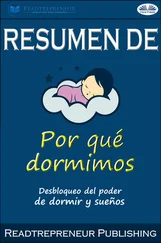Dietland
Sarai Walker

To my parents,
for believing in me
and to my foremothers,
who didn’t always have a voice
She waited for a few minutes to see if she was going to shrink any further: she felt a little nervous about this; “for it might end, you know,” said Alice to herself, “in my going out altogether, like a candle. I wonder what I should be like then?”
—Lewis Carroll, Alice’s Adventures in Wonderland
IT WAS LATE IN THE SPRING when I noticed that a girl was following me, nearly the end of May, a month that means perhaps or might be. She crept into the edges of my consciousness like something blurry coming into focus. She was an odd girl, tramping around in black boots with the laces undone, her legs covered in bright fruit-hued tights, like the colors in a roll of Life Savers. I didn’t know why she was following me. People stared at me wherever I went, but this was different. To the girl I was not an object of ridicule but a creature of interest. She would observe me and then write things in her red spiral-bound notebook.
The first time I noticed the girl in a conscious way was at the café. On most days I did my work there, sitting at a table in the back with my laptop, responding to messages from teenage girls. Dear Kitty, I have stretch marks on my boobs, please help. There was never any end to the messages and I usually sat at my table for hours, sipping cups of coffee and peppermint tea as I gave out the advice I wasn’t qualified to give. For three years the café had been my world. I couldn’t face working at home, trapped in my apartment all day with nothing to distract me from the drumbeat of Dear Kitty, Dear Kitty, please help me.
One afternoon I looked up from a message I was typing and saw the girl sitting at a table nearby, restlessly tapping her lime green leg, her canvas bag slouched in the chair across from her. I realized that I’d seen her before. She’d been sitting on the stoop of my building that morning. She had long dark hair and I remembered how she turned to look at me. Our eyes met and it was this look that I would remember in the months to come, when her face was in the newspapers and on TV—the glance over the shoulder, the eyes peeking out from the thick black liner that framed them.
After I noticed her at the café that day, I began to see her in other places. When I emerged from my Waist Watchers meeting, the girl was across the street, leaning against a tree. At the supermarket I spotted her reading the nutrition label on a can of navy beans. I made my way around the cramped aisles of Key Food, down the canyons of colorful cardboard and tin, and the girl trailed me, tossing random things into her shopping basket (cinnamon, lighter fluid) whenever I turned to look at her.
I was used to being stared at, but that was by people who looked at me with disgust as I went about my business in the neighborhood. They didn’t study me closely, not like this girl did. I spent most of my time trying to blend in, which wasn’t easy, but with the girl following me it was like someone had pulled the covers off my bed, leaving me in my underpants, shivering and exposed.
Walking home one evening, I could sense that the girl was behind me, so I turned to face her. “Are you following me?”
She removed tiny white buds from her ears. “I’m sorry? I didn’t hear you.” I had never heard her speak before. I had expected a flimsy voice, but what I heard was a confident tone.
“Are you following me?” I asked again, not as bold as the first time.
“Am I following you?” The girl looked amused. “I’m afraid I don’t know what you’re talking about.” She brushed past me and continued on down the sidewalk, being careful not to trip on the tree roots that had burst through the concrete.
As I watched the girl walk away, I didn’t yet see her for who she was: a messenger from another world, come to wake me from my sleep.
• • •
WHEN I THINK OF MY LIFE at that time, back then, I imagine looking down on it as if it were contained in a box, like a diorama—there are the neighborhood streets and I am a figurine dressed in black. My daily activities kept me within a five-block radius and had done so for years: I moved between my apartment, the café, Waist Watchers. My life had narrow parameters, which is how I preferred it. I saw myself as an outline then, waiting to be filled in.
From the outside, to someone like the girl, I might have seemed sad, but I wasn’t. Each day I took thirty milligrams of the antidepressant Y——. I had taken Y—— since my senior year of college. That year there had been a situation with a boy. In the weeks after the Christmas break I slipped into a dark spiral, spending most of my time in the library, pretending to study. The library was on the seventh floor and I stood at the window one afternoon and imagined jumping out of it and landing in the snow, where it wouldn’t hurt as much. A librarian saw me—later I found out I had been crying—and she called the campus doctor. Soon after that pharmaceuticals became inevitable. My mother flew to Vermont. She and Dr. Willoughby (an old gray man, with gray hair, tinted glasses, a discolored front tooth) decided it was best for me to see a therapist and take Y——. The medication took away my sadness and replaced it with something else—not happiness, but more like a low dull hum, a weak radio frequency of feeling that couldn’t be turned up or down.
Long after college ended, and the therapy ended, and I’d moved to New York, I continued to take Y——. I lived in an apartment on Swann Street in Brooklyn, on the second floor of a brownstone. It was a long and skinny place that stretched from the front of the building to the back, with polished blond floorboards and a bay window that overlooked the street at the front. Such an apartment, on a coveted block, was beyond my means, but my mother’s cousin Jeremy owned it and reduced the rent for me. He would have let me live there rent free if my mother hadn’t nosed in and demanded I pay something, but what I paid was a small amount. Jeremy worked as a reporter for the Wall Street Journal. After his wife died he was desperate to leave New York and especially Brooklyn, the borough of his unhappiness. His bosses sent him to Buenos Aires, then Cairo. There were two bedrooms in the apartment and one of them was filled with his things, but it didn’t seem as if he would ever come back for them.
There were few visitors to the apartment on Swann Street. My mother came to see me once a year. My friend Carmen visited sometimes, but I mostly saw her at the café. In my real life I would have more friends, and dinner parties and overnight guests, but my life wasn’t real yet.
The day after my confrontation with the girl, I looked up and down the street but I didn’t see her, so I set off, relieved not to be followed. A day of work at the café awaited me, but first I would stop at my Waist Watchers meeting, taking the long route so I could bypass the boys who congregated at the end of my block and often made rude comments.
My Waist Watchers meetings were held in the basement of a church on Second Street. The gray-rock church sat between a dry cleaner and a health club, the outline of its stained-glass window a daisy shape. Inside the church I walked down the circular steps to the basement, where I was greeted at the door by the usual woman with the clipboard. “Hello, Plum,” she said, and directed me to stand on the scale. “Three hundred and four pounds,” she whispered, and I was pleased that I was two pounds lighter than last week.
Читать дальше













